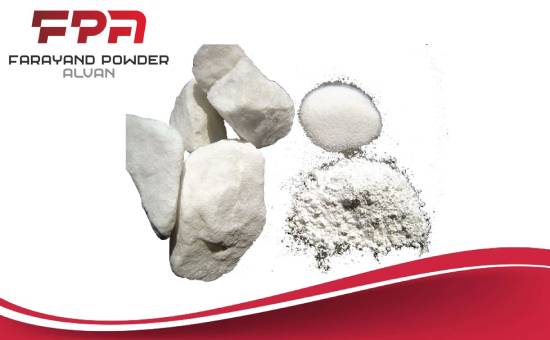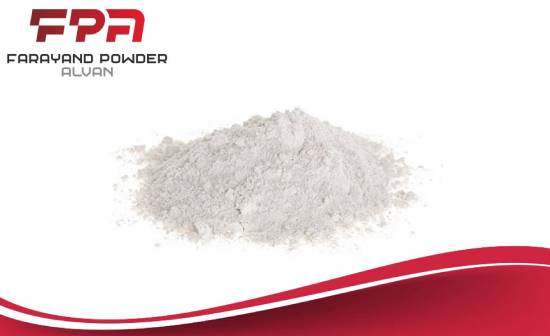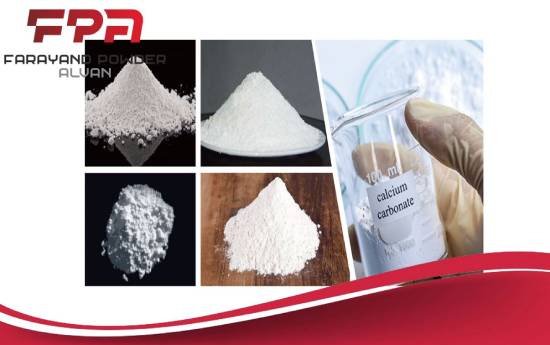One element in the vast landscape of industrial materials has quietly undergone transformative innovations—Coated Calcium Carbonate. This unassuming compound, widely used across diverse industries, has witnessed a revolution in its application and properties. In the rest of this article, we will review Innovations in Coated Calcium Carbonate and learn more about Coated Calcium Carbonate Technology.
Understanding Coated Calcium Carbonate
Coated calcium carbonate is a compound comprising calcium carbonate particles coated with various substances, enhancing their properties and diversifying their applications. The coating material is carefully selected, imparting specific characteristics to the particles, making them ideal for multiple industries.

Coated Calcium Carbonate Technology
Innovations in Coated Calcium Carbonate have shown themselves in various industries.
Paper Industry: Brightness, Opacity, and Printability
One of the critical innovations lies in developing advanced coating techniques that improve calcium carbonate's dispersibility, compatibility, and overall performance.
Traditional methods often involve surface treatment with stearic acid or other fatty acids, but newer technologies, such as the Coated Calcium Carbonate Industry, employ more sophisticated coatings to achieve better results.
Nano-coating, for example, involves the application of nanoscale coatings, which not only enhance the surface properties of calcium carbonate but also provide improved dispersion and reinforcement within a matrix.
The benefits of these innovations are most evident in the paper industry. Coated calcium carbonate is increasingly used as a filler and coating pigment in paper manufacturing.
The improved coating technologies increase paper product brightness, opacity, and smoothness. This not only enhances the visual appeal of the paper but also improves its printability. The coated calcium carbonate reduces raw material costs, as it can partially replace more expensive pulp components without compromising the quality of the final product.
To get information about Ground Calcium Carbonate, click here.

Plastics Industry: Enhanced Mechanical Properties and Thermal Stability
Innovations in Coated Calcium Carbonate have become popular in the plastics industry as a filler and reinforcing agent in polymer matrices. The advanced coating technologies ensure better dispersion within the polymer, leading to improved mechanical properties of the final plastic product. Additionally, coated calcium carbonate can act as a nucleating agent, influencing the crystallization behavior of polymers and enhancing their thermal stability. This makes it valuable in producing plastic films, pipes, and other molded products.
Paint and Coatings: Opacity, Rheology, and Environmental Sustainability
The paint and coatings industry has also witnessed coated calcium carbonate technology innovations. Incorporating coated calcium carbonate in paint formulations enhances opacity, rheology, and durability.
The improved dispersion achieved through advanced coating techniques results in a more uniform distribution of the pigment within the paint, leading to a smoother finish and better coverage. Moreover, coated calcium carbonate can reduce volatile organic compound (VOC) emissions, aligning with the industry's growing focus on environmental sustainability.
Adhesives and Sealants: Enhancing Adhesion Properties and Cost Efficiency
Coated Calcium Carbonate Industry has proven to be a valuable additive in adhesives and sealants. The enhanced surface properties and improved compatibility with polymer matrices contribute to developing high-performance adhesives. Using coated calcium carbonate in these applications improves the adhesion properties and provides cost advantages by partially replacing other, more expensive components.
If you want to know about What Is Coated Calcium Carbonate, you can click on the link.

Advantages of Coated Calcium Carbonate
- 1. Improved Performance
The primary advantage of using coated calcium carbonate lies in its ability to enhance the performance of end products. Whether it's the vibrant colors in paints, the durability of plastics, or the resilience of rubber, the coated particles contribute significantly to the overall quality.
- 2. Environmental Sustainability
Coated calcium carbonate also aligns with the growing demand for sustainable materials. Calcium carbonate, a naturally occurring mineral, coupled with advanced coatings, promotes eco-friendly practices in various industries.
Challenges and Future Prospects of Coated Calcium Carbonate Industry
While coated calcium carbonate has witnessed tremendous success, it's essential to acknowledge the challenges that come with its implementation. Cost implications and potential health concerns necessitate ongoing research and development to address these aspects.
Looking ahead, the future seems promising for coated calcium carbonate. Ongoing research aims to overcome existing challenges, paving the way for even more innovative applications and a broader spectrum of industries benefiting from this remarkable material.
Conclusion
In conclusion, Innovations in Coated Calcium Carbonate Technology have propelled it to the forefront of industrial materials, reshaping how industries approach paint formulation, plastics manufacturing, and rubber production. The advancements in coating technologies and the inherent benefits of calcium carbonate make it a cornerstone in pursuing high-performance, sustainable materials.
With over 30 years of experience in producing various industrial micronized powders and an experienced team with extensive knowledge of pigments, Farayand Powder Alvan Co. has been a reputable supplier in multiple industries and is honored to provide technical consultation to customers for the best and most economical solutions.


